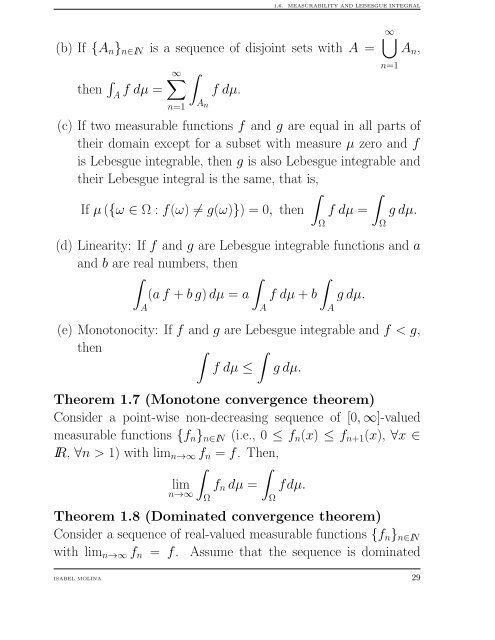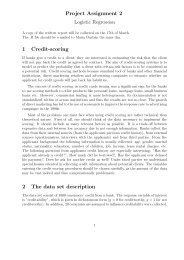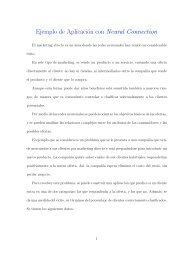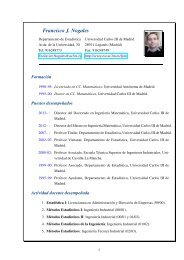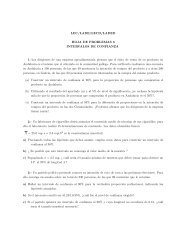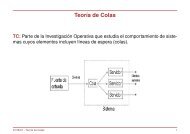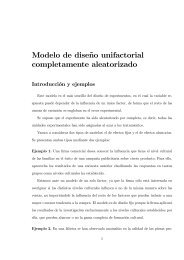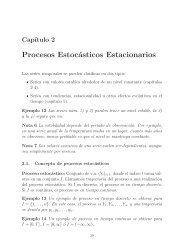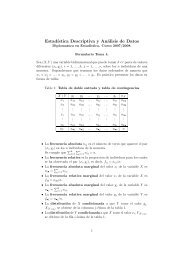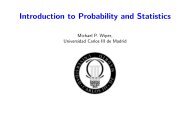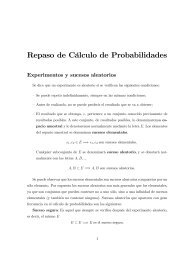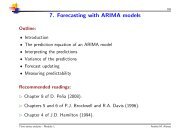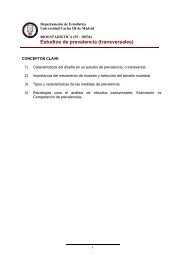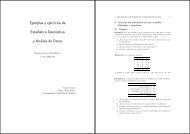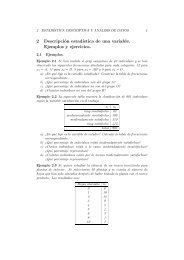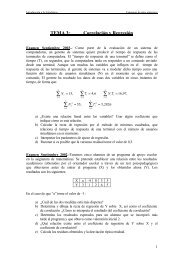Slides Chapter 1. Measure Theory and Probability
Slides Chapter 1. Measure Theory and Probability
Slides Chapter 1. Measure Theory and Probability
You also want an ePaper? Increase the reach of your titles
YUMPU automatically turns print PDFs into web optimized ePapers that Google loves.
<strong>1.</strong>6. MEASURABILITY AND LEBESGUE INTEGRAL<br />
(b) If {A n } n∈IN is a sequence of disjoint sets with A =<br />
then ∫ ∞<br />
A f dµ = ∑<br />
∫<br />
n=1<br />
A n<br />
f dµ.<br />
∞⋃<br />
A n ,<br />
(c) If two measurable functions f <strong>and</strong> g are equal in all parts of<br />
their domain except for a subset with measure µ zero <strong>and</strong> f<br />
is Lebesgue integrable, then g is also Lebesgue integrable <strong>and</strong><br />
their Lebesgue integral is the same, that is,<br />
∫ ∫<br />
If µ({ω ∈ Ω : f(ω) ≠ g(ω)}) = 0, then f dµ = gdµ.<br />
(d) Linearity: If f <strong>and</strong> g are Lebesgue integrable functions <strong>and</strong> a<br />
<strong>and</strong> b are real numbers, then<br />
∫ ∫ ∫<br />
(af +bg)dµ = a f dµ+b gdµ.<br />
A<br />
(e) Monotonocity: If f <strong>and</strong> g are Lebesgue integrable <strong>and</strong> f < g,<br />
then ∫ ∫<br />
f dµ ≤ gdµ.<br />
Theorem <strong>1.</strong>7 (Monotone convergence theorem)<br />
Consider a point-wise non-decreasing sequence of [0,∞]-valued<br />
measurable functions {f n } n∈IN (i.e., 0 ≤ f n (x) ≤ f n+1 (x), ∀x ∈<br />
IR, ∀n > 1) with lim n→∞ f n = f. Then,<br />
∫ ∫<br />
lim<br />
n→∞<br />
Ω<br />
f n dµ =<br />
A<br />
Ω<br />
fdµ.<br />
Theorem <strong>1.</strong>8 (Dominated convergence theorem)<br />
Consider a sequence of real-valued measurable functions {f n } n∈IN<br />
with lim n→∞ f n = f. Assume that the sequence is dominated<br />
Ω<br />
A<br />
n=1<br />
Ω<br />
ISABEL MOLINA 29


